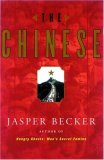Summary | Excerpt | Reviews | Readalikes | Genres & Themes | Author Bio

Introduction
Through the Open Door
The Chinese state is probably the oldest functioning organization in the world, dating back more than 2,000 years. It is also possibly the most successful in history, controlling more people and more territory, and for longer periods, and exercising a tighter grip over its subjects than any other comparable government in the last two millennia.
At the beginning of the twenty-first century the People's Republic of China governs the destiny of close to 1.3 billion people, or 21.6 per cent of the world's population, making it the most populous country on earth. In describing the different groups who comprise this vast population, this book aims to provide a broad overview of the current state of China.
At the base of the social pyramid are the peasantry who constitute around a billion people, more than the combined populations of the United States of America and the European Union. The book starts with them, probably the largest single identifiable group ever to have existed at any point in recorded history. But they are not uniform and the first chapter describes the very poorest of them, the 100 million who struggle to farm patches of stony soil in remote uplands.
The final chapter describes the apex of the pyramid, the tiny group of self-selecting rulers who live in the pavilions scattered among the gardens and lakes of what was once the imperial palace in the Forbidden City in Beijing. In between, the book looks at other groups, some defined by geography, some by economic or political status.
Many chapters draw on my own travels around China during ten years as a resident reporter. Yet much of China remains hidden. For one thing it is too big to be knowable. I have been to Shandong province a number of times but it has a population of 90 million, bigger than any European country. And China is secretive. Few foreigners, if any, have ever attended -- or at least reported on -- a meeting of a Chinese Communist Party (CCP) cell, let alone a session of the ruling Politburo. It is equally rare to be able to interview an officer in the People's Liberation Army (PLA) although it has a membership greater than the population of dozens of UN member states.
Intense secrecy and manipulation of information have long been regarded as an essential part of successful government and diplomacy, and though, as Marxists, China's Communist rulers have embraced concepts of modern 'scientific' government and so gather huge quantities of data, this has not made it any easier to understand the country.
The information travels up through the bureaucracy, and every layer revises it to conform to the targets set by its superiors. The central government constantly complains about the false statistics it receives but it is equally guilty of putting out false or deliberately distorted information. And not only is the present unclear but the past often changes too. The central state controls the archives and strives to ensure a monopoly over the reporting and recording of history. Although its verdicts on past events change frequently, this is never a cause of much shame or embarrassment.
Foreign scholars and outside agencies such as the United Nations or the World Bank are put under enormous pressure not to challenge Chinese statistical claims and rarely do. Many experts prefer co-operation to conflict, but anyone who spends time working in China eventually comes to doubt even basic facts.
How many people are there in China? One American ambassador, Admiral Joseph Prueher, remarked that he could not even find this out but he was told it was anywhere between 1,250 million and 1,300 million. Therefore, a population almost the size of Britain's may or may not exist. How much arable land is there to feed them? Official statistics say 95 million hectares (234 million acres), but satellite surveys suggest 140 million hectares (345 million acres).
Copyright © 2001 by Jasper Becker.
If every country had to write a book about elephants...
Click Here to find out who said this, as well as discovering other famous literary quotes!
Your guide toexceptional books
BookBrowse seeks out and recommends the best in contemporary fiction and nonfiction—books that not only engage and entertain but also deepen our understanding of ourselves and the world around us.